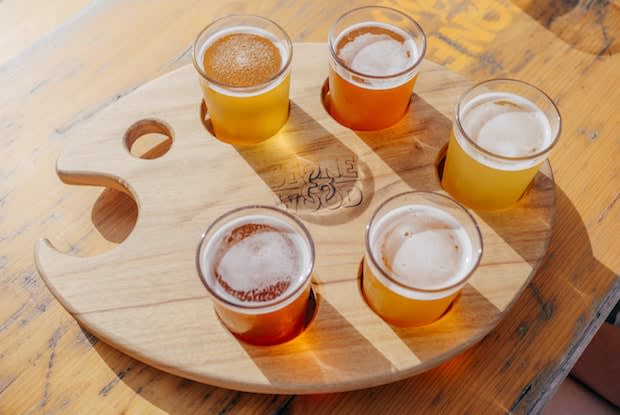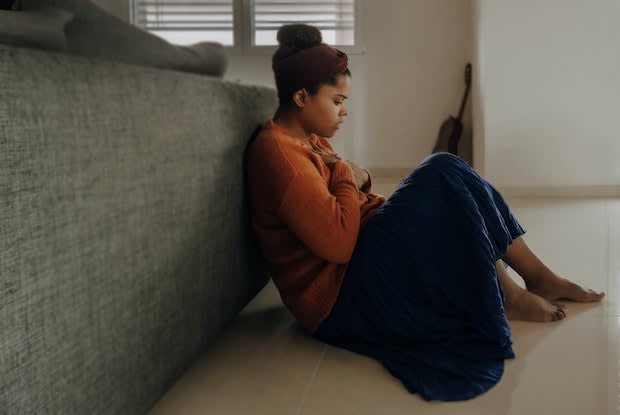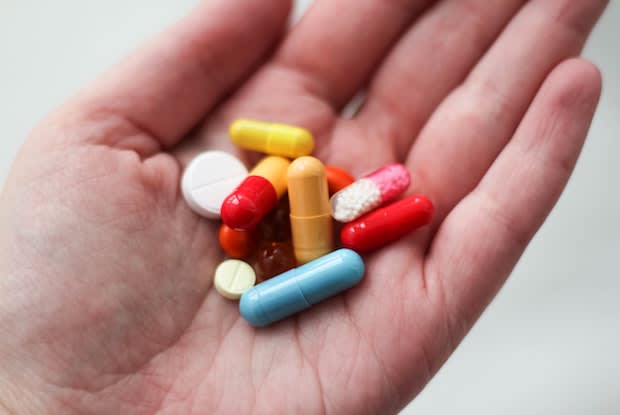Table of Contents
a. How Alcohol Affects Anxiety
a. How Alcohol Affects Depression
Overview
It is well known that alcohol can affect our mental health. A bottle of beer or glass of wine can help make people feel relaxed, more sociable, and less stressed. However, alcohol can also cause mental health problems, including anxiety, depression, and psychosis.
Around 14.4 million Americans have an alcohol use disorder. This is the term used when people struggle to control how much they drink and have emotional troubles when they are not drinking. This disorder affects around 5.8 percent of the adult population. Alcohol use disorders are highest in unemployed men aged 18-24. [1]
Like many other drugs, the more alcohol that you have, the more likely it is to have long-term health effects. Heavy drinking can cause several physical health risks. These can include heart disease, stroke, cancer, and liver disease. [1] Binge drinking consists of drinking five or more drinks at least once within the past thirty days. Heavy drinking involves drinking five or more drinks, five or more times within the past thirty days. [1]
Alcohol also causes mental health issues. Keep reading to learn about how alcohol can affect your mental health. Anxiety disorders affect 40 million Americans and are the most common mental illness in the United States. [2] For many people with anxiety, alcohol may give short-lived feelings of relaxation. Alcohol is a sedative and depressant drug that affects the nervous system. Alcohol consumption can often give effects that are similar to antianxiety medications. [3] However, these feelings do not last. Long-term or excessive drinking has the opposite effect and increases anxiety.
Alcohol and Anxiety
Get savings updates for Antabuse
One specific form of anxiety is a social anxiety disorder. Symptoms can include feeling self-conscious about social interactions, worry about future social events, difficulty speaking to others, or nausea and trembling around other people. [4] People with a social anxiety disorder may drink alcohol to relieve some of these symptoms. Around one in five people that have social anxiety disorder also suffer from alcohol dependence.
When people drink alcohol regularly, they can build up a tolerance. If someone with anxiety frequently drinks to relax, stronger or a higher quantity of alcohol will soon be required to achieve the same levels of relaxation. People that have anxiety, therefore, are up to three times more likely to have a substance abuse problem than those without anxiety. [5]
a. How Alcohol Affects Anxiety
The effects of alcohol start to occur within ten minutes of consumption. [6] The more alcohol that is consumed, the higher a person’s BAC (blood alcohol content) level rises. Increased BAC levels temporarily increase the feelings of excitement. However, once BAC levels fall, feelings of depression occur, making you feel more anxious than before. [3]
Additionally, alcohol alters the levels of neurotransmitters, such as serotonin in the brain. Neurotransmitters send electrical and chemical charges through the brain and control many brain and body functions. These changes in neurotransmitters levels also worsen anxiety once the effects of alcohol have worn off. This is known as alcohol-induced anxiety and can last for an entire day after drinking.
Depression (or major depressive disorder) is a common mental illness that negatively affects your thoughts and actions. The condition affects around 7 percent of adults each year, and around 17 percent of people will experience depression at some point during their lives. [7] For alcoholics, between 30 and 40 percent will suffer a depressive disorder. [8] Depression typically first occurs during late adolescence to mid-twenties and is more likely to affect women than men. It is important to note that the condition of depression is different from being depressed or grieving over an experience or death, although they may overlap. Around one-third of people that have major depression also have a problem with alcohol. N not only does alcohol worsen depression, but heavy consumption also lessens the effectiveness of antidepressant medications. [9] In addition to the depressant effects of alcohol as a drug, alcohol also increases your risk of acting on impulse or making poor decisions. [9] This can have a secondary effect on depression. Alcohol may affect personal or work relationships or cause you to spend money recklessly, which may also worsen depression. Alcoholism and depression are often linked in a cycle. Depression may cause people to drink alcohol while drinking alcohol can cause or worsen depression. When alcohol abuse is the cause of depression, then depression symptoms will usually disappear or lessen once alcohol consumption is stopped. However, it is important to gradually lower alcohol intake, rather than stopping ‘cold turkey’ to avoid alcohol withdrawal symptoms. [10] Psychosis describes a range of conditions that affect the mind and cause a loss of contact with reality. [11] This can involve people having delusions, hallucinations, or speaking nonsense. Around three percent of people experience a form of psychosis during their lifetimes and episodes usually begin during late adolescence or a person’s early twenties. [12] Alcohol-related psychosis may be a result of current intoxication, alcohol withdrawal, or present in people with alcohol use disorders. Symptoms often appear quickly and last for a few days or weeks. However, continued alcohol use after an alcohol-induced psychotic episode can trigger other longer-lasting psychotic disorders. Many people believe that the way to treat an alcohol use disorder is by sheer willpower. However, alcohol use disorder is a brain disease and should be treated as such. The changes that alcohol causes in your brain can make it very difficult to quit without proper treatment. Detoxing your body is a key step. Not drinking alcohol for a short period allows your body to remove all alcohol from the system. This can take up to a week. Many people go to a specialized treatment center or a hospital to detox so that they can be treated for withdrawal symptoms, including seizures, shaking, and hallucinations. [13] There is no automatic cure for an alcohol use disorder. However, some medications can be used to make drinking alcohol less enjoyable or to help with alcohol cravings. A common medication to treat alcoholism is Antabuse (disulfiram). Antabuse works by blocking an enzyme that helps process alcohol. This results in very unpleasant side effects, such as nausea or vomiting when alcohol is consumed. Another common medication is Campral (acamprosate). Campral works by affecting chemicals in the brain to help with alcohol cravings. Medications to treat alcoholism should be used alongside other treatment methods like counseling. Counseling can help people stop drinking alcohol in several ways. There are many different forms of counseling available, depending on what each person finds beneficial. Sessions may be short-term, one-to-one, or in groups, over an extended period of time. Speaking to your doctor can help you decide what form of therapy is best for you. The content in this article is intended for informational purposes only. This website does not provide medical advice. In all circumstances, you should always seek the advice of your physician and/or other qualified health professionals(s) for drug, medical condition, or treatment advice. The content provided on this website is not a substitute for professional medical advice, diagnosis or treatment.
Alcohol and Depression
a. How Alcohol Affects Depression
Alcohol and Psychosis
Treatment for Alcoholism
a. Detox

b. Medications
c. Counseling
